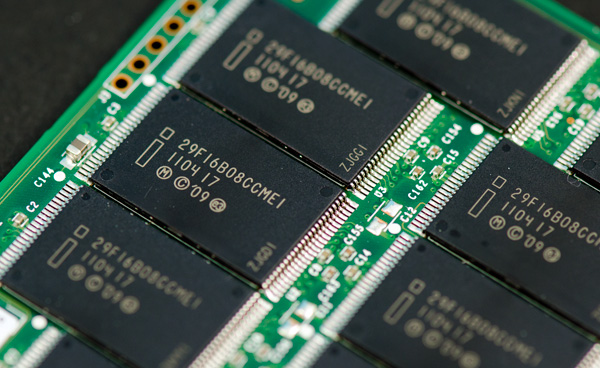The Intel SSD 320 Review: 25nm G3 is Finally Here
by Anand Lal Shimpi on March 28, 2011 11:08 AM EST- Posted in
- IT Computing
- Storage
- SSDs
- Intel
- Intel SSD 320
Final Words
Intel's SSD 320 would've been a great drive to have a year ago. Its performance is comparable to Micron's C300 or anything based on the SandForce SF-1200 controller, which last year was just awesome. If you've got a 3Gbps controller and need a drive today the 320 still isn't a bad option, particularly if Intel is promising even better reliability than the previous generation. The inclusion of full disk encryption is nice and it's something I hope all controller makers will embrace going forward as well. My biggest issue with the 320 is that it's not very forward looking.
Throw 2011 controllers into the mix, particularly the SF-2200 in the upcoming Vertex 3 and the 320 doesn't look all that great. The only way the 320 will make sense is if these next-generation drives ship at significantly higher price points. We also don't have a good idea of how much slower the smaller capacity drives perform in our benchmarks at this point.
I am curious to see how well a redesigned Postville controller would do against these newer drives. For an architecture that debuted in 2008, Intel's controller certainly has legs but it's time for something new - particularly if Intel isn't going to aggressively discount these mainstream drives.











194 Comments
View All Comments
anthonyjcho - Thursday, November 17, 2011 - link
I just got the 40GB version of this drive for my work computer as a cache drive.I have a large DB files (1-2GB) that I access frequently and I needed a "reliable" SSD for my task. Crucial and Intel came to mind, and only Intel products could be sourced. By the way, I use a OCZ SSD at home for gaming for better read performance.
Long story short,
100-105 MB/s for Read/Write is drastic improvement over the 7200rpm HDD I was using.
My work is much more productive because I don't have to wait so long for data retrieval anymore.
I highly recommend it to any data analyst.
spacehead74 - Thursday, January 5, 2012 - link
I've been finding these on Ebay for less than $200/160gb. The 5-year warranty is a great selling point when using these for laptop upgrades.sqeeek - Thursday, October 2, 2014 - link
Still using two of these as of October 2014. Not the fastest sequential r/w but the random reads + low latency are still mind-blowingly fast compared to a spinning disk. Reliability is great as well - I even bought one used.DocSportello - Monday, September 21, 2015 - link
I installed my 320 in early 2012, and it's still running strong. My first (and thus far only) SSD, so it was a huge step up from HDs.If the numbers I saw at the time were to be believed, 320's were significantly more reliable than the alternatives. I got a bit spooked by those ongoing reports of 8-megabyte crashes; was it just a matter of time until that happened to me? But those reports mostly involved a system crash and usually a power loss; that's rare for me on a desktop with a quality power supply and a UPS.
Anyway, for whatever reason, my 320 is doing well. The specs claimed a million hours MTBF; what did the real numbers turn out to be? Oddly, the SSD Toolbox shows less than a thousand hours of power-on time, which would be unbelievably low, except I saw a post somewhere suggesting that that number is more a count of read/write activity than powered on and ready.
If I were buying today, I'd look at a Samsung 850, figuring the 40 nm cells have got to be inherently more robust than today's typical 19 nm cells. But that's theory; meanwhile the Intel 320 keeps rolling along.